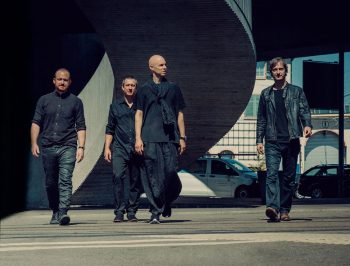By Denny Dyroff, Entertainment Editor, The Times
The Vietnam War as an undeclared war in Vietnam, Laos, and Cambodia that lasted from November 1955 to the fall of Saigon in April 1975. It had a profound effect on the citizens of those countries and on the soldiers of the US Army. Just ask any of the hundreds of Vietnam vets from Pennsylvania who have been prescribed medical marijuana to help deal with their PTSD.
The war resulted in 58,000 Americans who perished in the Vietnam War, two million Vietnamese civilians who died and the estimated 1.3 million combatants who died, both South and North Vietnamese.
The war also resulted in a musical – “Miss Saigon.”
“Miss Saigon,” which is running now through March 31 at the Academy of Music (Broad and Locust streets, Philadelphia, 215-731-3333, www.kimmelcenter.org), as part of the Kimmel Center’s Broadway Philadelphia Series, looks at life in Vietnam during that war-torn era.
Set in Vietnam in 1975 during the final few days prior to the American evacuation of Saigon, “Miss Saigon” tells a tale of two young lovers torn apart by the fortunes of destiny and held together by a burning passion and the fate of a small child.
“Miss Saigon” is one of the longest-running shows in Broadway history. Additionally, it has been performed in more than 30 countries and 250 cities and has been translated into 12 different languages. The original Broadway production received 11 Tony Award nominations in 1991, including Best Musical, and won three.
There was a Broadway revival of “Miss Saigon” in 2017. The production was nominated for two Tony Awards, two Drama League Awards, one Outer Critics Circle Award and one Drama Desk Award. Now, the hit musical is out on a national tour.
“We started rehearsals in August in New York and moved to Providence, Rhode Island to tech in September,” said Christine Bunuan, during a phone interview last week from a tour stop in East Lansing, Michigan.
“This is a show that I have loved since high school and now I have the privilege of working with the original creative team and sharing this incredible epic story across the country.”
Bunuan plays the role of Gigi Van Tranh. One of the elder bar girls, Gigi is a hardened Saigon showgirl who was initially voted as “Miss Saigon.” She is a stripper who works for the “Engineer” in his Saigon strip club/brothel.
“Back in May, I went through auditions then creatives and then dance,” said Bunuan. “I didn’t hear anything for a week-and-a-half. I got a call back on May 31 and, on June 1, I got my offer. I grew up with the show and everybody wanted to play Kim.”
In the show, Kim is a 17-year-old girl, recently orphaned and forced to work at “Dreamland.”
“I no longer am a Kim,” said Bunuan. “I was auditioning for Kim back in the 90s when the show first came out. I had already let go of this show because I had outgrown it. My agent called me about the role of Gigi. I said to myself – why haven’t I done this. When I sang ‘The Movie in My Mind,’ I knew that it was my role. In recent years, I had been doing more comedic roles.”
Bunuan is a Filipino American actress as is Emily Bautista who plays the role of Kim. Filipino actor Red Concepcion plays the role of “The Engineer.” Bunuan grew up in Vacaville, California.
“I went to DePaul University in Chicago and got a BFA in theater,” said Bunuan. “I still live in Chicago with my husband and I fly out to New York when there are auditions. My first job was in the national tour of ‘The 25th Annual Putnam County Spelling Bee.’”
The revival of “Miss Saigon” has been updated a little.
“They changed the lyrics in my song ‘The Movie in My Mind,’” said Bunuan. “The changes they’ve made, I connect to in a stronger way. They’ve changed the lyrics in a lot of the songs to make the message clearer. And, they have a new song for Ellen called ‘Maybe.’
“This production is definitely darker – grittier. We’re thrown back into that time period – and we have two Vietnamese actors in the show.
“I have met several Vietnam wear veterans who have come to the show and some Vietnamese families. This show is still helping people heal. I
I met a Vietnamese woman whose family was in the war and remembers being a boat person. She’s now a doctor who goes back to Vietnam to fix cleft palates.”
Bunuan talked about the challenges of playing the role of Gigi.
“My song ‘The Movie in My Mind’ is one of the hardest songs in the show,” said Bunujan. “Singing it every night is a challenging – vocally and emotionally. It’s dark and I have to pull myself out of it.
“I love sharing Gigi’s story. She a bargirl – the most experienced one. She’s constantly fighting to get out. These girls have lost everything. They have to sell their bodies to have a place to live and food to put in their mouth. On the outside, it looks like they’re having a good time. On the inside, they yearn for a good life.’
The show deals with love and the theme of self-sacrifice. It works on a very basic human level.
“The story at its core is about a mother who sacrifices for her child — a love story that is set in the saddest of places,” said Bunuan. “The story is universal. Everyone has a mom. Everyone understands love for a child.”
Video link for “Miss Saigon” — https://youtu.be/rQD31F5bOFc.
The show at the Academy of Music is running now through March 31.
Ticket prices range from $20-$150.
To get into a good mindset prior to the show, leave a little early and head to Washington Avenue east of Broad Street in South Philly. Visit one of the many Vietnamese restaurants in the area and enjoy a belly-filling bowl of Pho. One of Vietnam’s most famous dishes, Pho (pronounced “fuh”) is a delicious beef and rice noodle soup. Your taste buds will be thanking you for the rest of the evening.
If you’re in the mood for music rather than a musical, head to the World Café Live instead of the Academy of Music to catch a performance by one of Switzerland’s top jazz/avant-garde musicians — Nik Bärtsch.
Bärtsch’s compositions are highly entertaining – and very deceptive. The music composed and performed by Bärtsch with his various ensembles is simple and complex at the same time – minimalistic and full simultaneously.
On March 20, Bärtsch will bring his group Ronin to Philly for a return engagement at the World Café Live (3025 Walnut Street, Philadelphia, 215-222-1400,www.worldcafelive.com). Ronin is turning in support of its most recent album “Awase,” which was released last year on ECM Records.
“We’ve played a lot since the last time we were in Philadelphia,” said Bärtsch during a phone interview Tuesday from a tour stop in Seattle, Washington. “We had several different tours, including a big European tour with ECM’s celebration.
“We have a lot of new aspects to the music and some new tunes. We’ll play a revision of some of the compositions. There are a lot of surprises in the show. We’ve also put things in from newer material.”
Bärtsch makes music that draws listeners in – in a very subtle way – especially with a piece like “Modul 58.”
“We open the set with ‘Modul 58,’” said Bärtsch. “‘Modul 58’ is the biggest piece – and the most challenging. It’s evolved a lot into a complex structure with the band. The work is written to be played as composed. Now, we can hear all the levels because it is presented very central and direct with more interplay and transition.
“Usually, we look for a piece we can dive into ‘Modul 58’ is one of the essential pieces because sound-wise it is very open. The band members can interact with each other and the room. In the last year, the composition has developed very much. It was around 12 minutes on the album. Now, it depends on how we hear the room. It can expand into a 20-minute piece.”
Bärtsch, a pianist, composer and producer who was born and still resides in Zürich, Switzerland, began studying piano and percussion when he was just eight years old.
After attending high school at Musikhochschule Zürich, Bärtsch studied philosophy, linguistics and musicology at the University of Zürich.
His rich musical resume includes ongoing work on his Ritual Groove Music as pianist and composer and leading both the ensemble Mobile and the zen-funk quartet Ronin.
Bärtsch is an instructor for “Practical Aesthetics” at the Musikhochschule Zürich/Winterthur, co-founder of the music room Club EXIL in Zürich and founder of the label Ronin Rhythm Records, a platform for creative groove music. One of his main interests is the influence and the combination of music and movement, especially in the following body techniques — Aikido, Feldenkrais, and Gyrotonic.
“As a kid, I had a fascination with rhythm,” said Bärtsch. “I liked to drum on things, I told my mother I would like to play drums. It was hard to get it at school because they said drums were not an instrument for kids.
“Then, I saw a young guy playing piano – playing boogie-woogie music on piano. That’s what I wanted to do. At that time, there were no jazz teachers at my school, so my mother got another private teacher for me. I stayed on drums but piano became my main instrument. I decided to focus on piano in a classical context.
“I also learned about singing – learning from the use of voice to work in movement with brass. I never sang in public but singing influenced me in phrasing – and moving my body while playing instruments. I learned more about body movement from Akido. Movement became very essential. I played the way singers moved.
“When I finished at the University of Zürich with a piano diploma, I had to learn to find my own way. At the university, I also studied philosophy and linguistics. I was always interested in improvisation – people like Gershwin – and then the minimalists. I played minimalistic music but missed the larger sound. I tried more and more to combine that.”
Bärtsch began work in three distinct formations. The group Mobile plays purely acoustic music, performed in rituals of up to 36 hours, including light and room design. The Zen-funk quartet Ronin, by contrast, is more flexible and plays the compositions more freely. As a solo performer, Bärtsch performs his compositions on prepared piano with percussion.
According to Bärtsch, “‘Ritual Groove Music,’ which is the title of my first CD, also points to the fundamental concept of my musical thinking. The music shows a close affinity to architecturally organized space and is governed by the principles of repetition and reduction as well as by interlocking rhythms.
“A piece of music can be entered, inhabited like a room. It moves forward and transforms through obsessive circular movements, superimposition of different meters and micro-interplay. The listeners attention is directed toward minimal variations and phrasing. The band becomes an integral organism — like an animal, a habitat, an urban space. One must think with ears and hands.
“Despite the tightly organized compositional construction, improvisation plays an important role in our music. On the one hand, accentuation, ghost notes, and variations within a composition are tossed back and forth between the musicians. On the other hand, a particular voice within a composition might have more freedom than the others.
“In doing so, that voice forms an independent module that can interact with the strictly notated interlocking patterns in continuously changing ways. Groove-habitats or void musical space of raw poetry emerge.
“My thinking and music are based on the tradition of urban space. They are not distilled from a national or stylistic tradition but from the universal sound of cities. The city in its roaring diversity requires an ability to focus and concentrate on the essential — to measure one’s actions, to remain silent at the right place. This music draws its energy from the tension between compositional precision and the self-circumvention of improvisation. From self-implied restriction stems freedom. Ecstasy through asceticism.”
Bärtsch’s “weltanschauung” (German for “view on life”) is apparent on his new album “Awase.”
“Awase”, a term from martial arts, means “moving together” in the sense of matching energies. It is a fitting metaphor for the dynamic precision, tessellated grooves and balletic minimalism of Bärtsch’s Ronin. Bärtsch speaks of a new-found freedom and flexibility in the approach to the material, with “greater transparency, more interaction, more joy in every performance”.
“We recorded ‘Awase’ in October at Studios La Buissonne in the south of France in October 2017 and it was produced by Manfred Eicher,” said Bärtsch. “It’s the same studio as other Ronin albums. We really took our time. We found a direct, immediate flow in the studio.”
Ronin’s music consistently follows the same aesthetic vision under various instrumental guises — creating the maximum effect by minimal means.
Despite the wide variety in the band’s influences, Ronin’s music always possesses a strong individuality. The talented musicians incorporate elements of disparate musical worlds – including funk, new classical music and sounds from Japanese ritual music – and meld them into a coherent new style.
“It’s a big challenge,” said Bärtsch. “But we are happy when the music slowly seduces you. The whole process was quite long. Some pieces are from five years ago. Every Monday, we play live at my Club EXIL in Zürich when we’re not out on tour. We check out new pieces there first. In the end, we get results that are complex but not complicated.”
Bärtsch will conclude his stateside tour at the end of March. Then, he will return to Switzerland in time to see his favorite football (soccer) team F.C. Zürich play FC Basel semifinal round of the Swiss Cup on April 25 at Letzigrund Stadion in Zürich. (Go FCZ!)
Video link for Nik Bärtsch’s Ronin — https://youtu.be/hjtPj8F-SKM.
The show at the World Café Live will start at 8:30 p.m. Tickets are $27.








